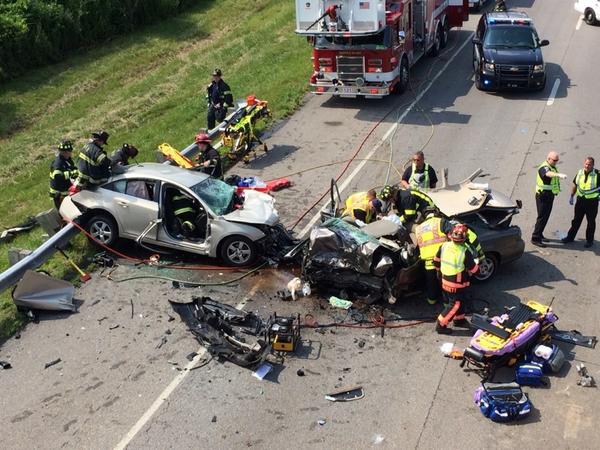Here are explanation of some difficult to understand FAQs.
How does automobile insurance work in a car accident where claimant is settled without blame being established to any party?
If you are from one of such states that practice a few versions of a no-fault motor insurance scheme – you can consider a different set of principles when you’ve been suffered in a automobile accident (no-fault regulations are not practiced to vehicle damage cases).
You’ll try to deal first with your own automobile insurance firm (generally recognized as PIP policy) to get settlement for health care expenses and missed income brought by the accident. It is of no importance considering who brought the automobile accident (they don’t name it “no-fault” for free). For slight injuries, that’s generally the last part of the story; your case is decided with your own insurance firm. Additionally, you can’t recover non-financial losses, which are only settlement against pain and suffering.

However when your claim copes with the rules in your location, either since your injuries are much critical or since you’ve spent medical expenses more than a certain limit, you can overlook no-fault approach and submit a claim to insurance firm or to court against the responsible driver. The unique rules of no-fault laws only apply in your state if applicable, but currently you’re normally able to get the full settlement of personal injuries, including pain and suffering.
I have different opinions with the police statement that was prepared after my accident. What can I proceed?
Following a car accident, principally where drivers or anybody else have got injuries, a police officer may arrive at the location and prepare a police statement. It will has lots of information concerning the collision, such as the persons involved, eyewitnesses who noticed visually what happened, details about vehicle damage, road damages, the pose of the vehicles after accident, an explanation of the accident, almost certainly one or two diagrams, and even a few initial determinations on what or who brought or led to the car accident.
(Note: this article is intended for informational purposes only and should not be read as a promotion, solicitation or endorsement. The author has no affiliation with cash advance solicitors any of its agencies or subsidiaries, or with any other personal injury law firm.)
Looking at all that it involves, it’s not causing surprise that the police statement plays a major role while an insurance claim agent appraises critically an injury or car damage claim. However what if you believe the police accident statement has wrong or imperfect set of facts? You may try to make a modification to the police statement, but it relies on the type of the things you have different opinion about.
Modifying factual things
If the police got some wrong factual information – about your car, your insurance, or the site of the accident, for instance – you can most likely get the statement modified by providing documents for correction.
Modifying uncertain things
If you basically don’t accept informations in the police accident statement – process of the accident supported by an eyewitness, or the officer’s observing that you breached a traffic rule – it will be not so easy to make any change. In such situation, the better you can possibly do is to prepare your own description of accident you have hope that it be used like an alternative to the report.
Saam Smith is a blogger who works alongside a team of cash advance solicitors they offers 100 % compensation without no 25% deduction. She has had his work published across a huge range of different platforms, Blogs, Papers, News and media. She has previously worked as a content writer and a journalist. She likes the springtime, long walks on the beach, and feeding the squirrels in the park, and one day would like to write a best-selling novel.
